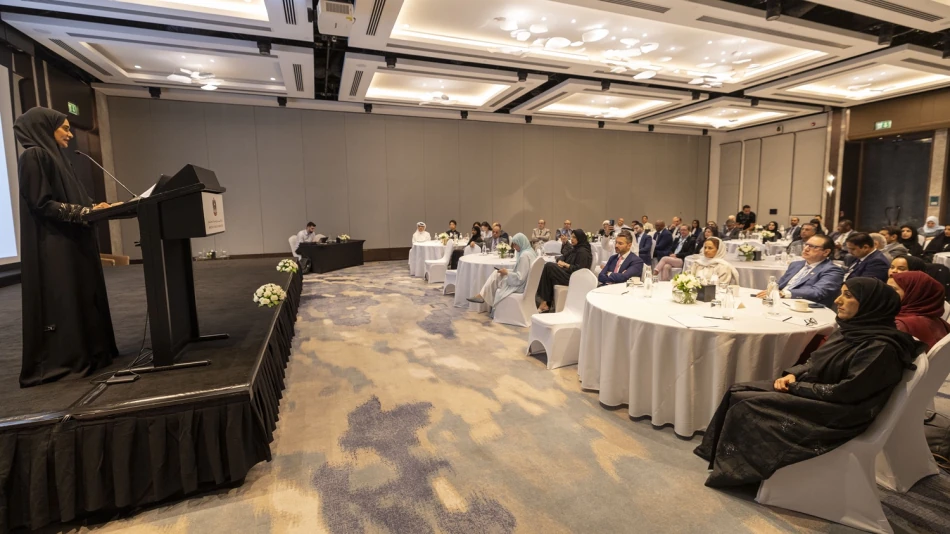
Multidisciplinary Medical Committee Formed to Assess Cancer Cases Nationwide
UAE Mandates Multidisciplinary Cancer Teams to Cut Deaths by 30% by 2030
The UAE has introduced sweeping new regulations requiring all hospitals treating cancer patients to establish multidisciplinary medical teams for case evaluation and treatment planning. The move, outlined in Ministerial Decision No. 25 of 2025, represents a systematic approach to standardize cancer care nationwide and aims to reduce cancer mortality by 30% within five years, aligning with World Health Organization global targets.
A National Framework for Cancer Care Excellence
The Ministry of Health and Community Protection organized a comprehensive workshop in Dubai to introduce healthcare professionals to the new requirements. The regulation mandates that all medical facilities providing cancer care must establish specialized committees comprising multiple medical disciplines to evaluate cases and determine treatment pathways.
This standardization effort reflects the UAE's broader healthcare transformation strategy, moving beyond fragmented care models toward integrated, patient-centered approaches. The decision comes as cancer rates continue rising globally, with the UAE positioning itself as a regional leader in oncology services.
Mandatory Team Structure and Protocols
Under the new rules, no cancer patient can undergo surgery or treatment without a written treatment plan approved by the multidisciplinary committee and documented in their medical file. This requirement eliminates ad-hoc treatment decisions and ensures every case receives comprehensive specialist review before intervention.
The teams must provide holistic care addressing patients' physical, emotional, psychological, and social needs from diagnosis through treatment completion. Regular monitoring and treatment plan adjustments based on patient response become mandatory, creating accountability mechanisms previously absent in many facilities.
Global Context: Following International Best Practices
The UAE's approach mirrors successful models implemented in countries like Singapore, Germany, and leading US cancer centers, where multidisciplinary tumor boards have become standard practice. Research consistently shows that patients treated by coordinated specialist teams experience better outcomes, shorter diagnosis-to-treatment times, and reduced medical errors.
Unlike voluntary adoption seen in many healthcare systems, the UAE's regulatory mandate ensures uniform implementation across public and private sectors. This comprehensive approach distinguishes it from piecemeal reforms attempted elsewhere in the region.
Economic and Healthcare System Impact
The regulation addresses significant healthcare economics challenges. By reducing treatment duplication, streamlining care pathways, and minimizing medical errors, the system should generate substantial cost savings while improving patient outcomes. Healthcare facilities will need to invest in coordination infrastructure and staff training, but reduced malpractice exposure and improved efficiency should offset these costs.
For medical professionals, the change promises better working environments through clearer protocols and shared decision-making responsibility, potentially improving job satisfaction and reducing burnout in high-stress oncology departments.
Ambitious Mortality Reduction Targets
Dr. Hussein Al-Rand, Assistant Undersecretary for Public Health Sector, emphasized that the UAE already ranks among advanced nations in cancer care delivery. The new framework supports the National Cancer Prevention and Control Plan's aggressive goal of reducing cancer mortality by 30% by 2030.
This target aligns with WHO global action plans but represents a particularly ambitious timeline given the UAE's growing and aging population. Success will require not only improved treatment coordination but also enhanced early detection programs and prevention initiatives.
Implementation Challenges and Opportunities
Dr. Buthaina Bin Belaila, Head of Non-Communicable Diseases and Mental Health Department, noted that the workshop represents the first implementation step in raising professional awareness about the new requirements. The transition will require significant coordination between government and private healthcare providers.
Healthcare facilities must now rapidly develop multidisciplinary capabilities, potentially creating opportunities for medical education partnerships and specialist recruitment. The regulation may accelerate the UAE's position as a regional medical hub, attracting international cancer specialists and medical tourism.
Long-term Healthcare Transformation
This regulatory change signals the UAE's shift toward preventive, coordinated healthcare delivery models. By mandating systematic cancer care approaches, the country positions itself ahead of regional competitors while addressing growing healthcare demands from an increasingly diverse population.
The success of this initiative could serve as a template for other medical specialties, potentially transforming the UAE's entire healthcare delivery system toward more integrated, outcome-focused models that prioritize patient experience alongside clinical excellence.
Most Viewed News

 Sara Khaled
Sara Khaled






